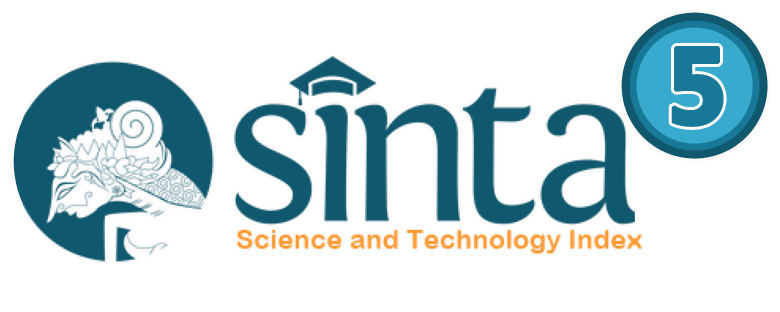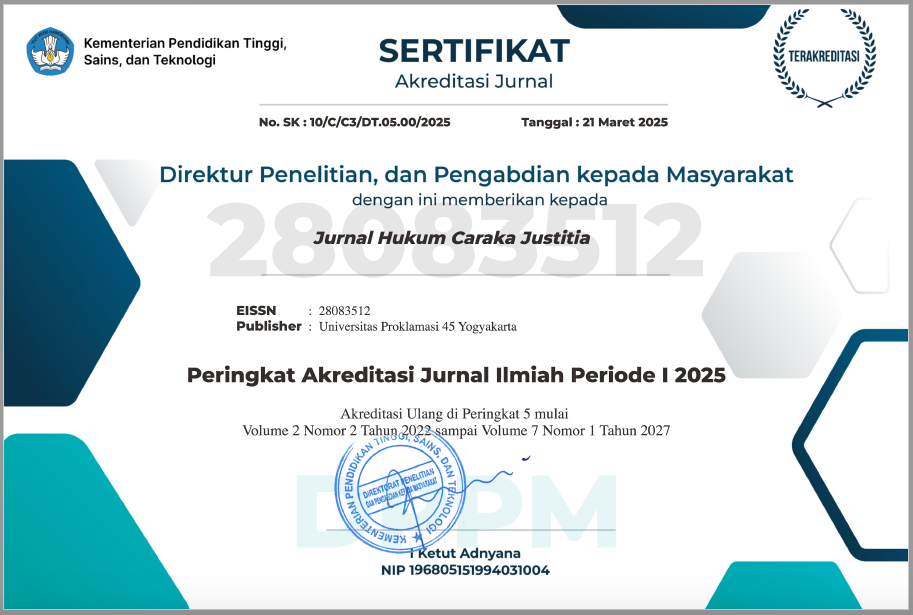Implikasi Etika dan Hukum dalam Penggunaan Teknologi Pengenalan Wajah
Perlindungan Privasi Versus Keamanan Publik
DOI:
https://doi.org/10.30588/jhcj.v4i2.1828Keywords:
Facial Recognition Technology, Ethics, Law, Privacy Protection, Public Security.Abstract
Facial recognition technology has been widely applied in everyday life and raises pros and cons, especially in the legal and ethical realms related to protecting privacy and public security. This research investigates the moral and legal implications of implementing this technology, with a focus on the conflict between individual privacy and public safety. Through a comprehensive literature review, this research analyzes various relevant views and findings. Researchers’ conclusions often highlight the dilemma between ethics and law in the use of facial recognition technology, emphasizing the importance of striking a balance between protecting privacy and public safety. This research aims to make a significant contribution to understanding this debate and promoting responsive and fair policy.
References
Artikel Jurnal
Feng, Cen, & Guanghui Wang. “Dictionary Representation of Deep Features for Occlusion-Robust Face Recognition”. IEEE Access 7 (2019): 605-26595. https://doi.org/10.1109/ACCESS.2019.2901376.
Ginanjar, Denda, & Arief Fahmi Lubis. “Urgensi Perlindungan Data Pribadi Dalam Menjamin Keamanan Data”. Jurnal Hukum Dan HAM Wara Sains 1, no. 01 (2022): 21-26. https://doi.org/10.58812/jhhws.v1i01.7.
Kusnadi, Sekaring Ayumeida, & Andy Usmina Wijaya. “Perlindungan Hukum Data Pribadi Sebagai Hak Privasi”. Al Wasath Jurnal Ilmu Hukum 2, no. 1 (2021): 9-16. https://doi.org/10.47776/alwasath.v2i1.127.
Mung, Pujanarko, Victor, & Andreas Simanjuntak. n.d. “Problematika Etika Komunikasi Verbal Dalam Penulisan Berita di Media Online”. Jurnal Citra 9, no. 1 (2021).
Ridwan, Muannif, Bahrul Ulum, & Fauzi Muhammad. “Pentingnya Penerapan Literature Review Pada Penelitian Ilmiah (The Importance Of Application Of Literature Review In Scientific Research).” Jurnal Masohi 2, no. 1 (2021): 42-51. http://journal.fdi.or.id/index.php/jmas/article/view/356.
Solanki, Kamini, & Prashant Pittalia. “Review of Face Recognition Techniques.” International Journal of Computer Applications 133, no. 12 (January 2016): 0975 – 8887. https://citeseerx.ist.psu.edu/document?repid=rep1&type=pdf&doi=e1c48439ea50a7c59d3411b6c1b881bfa4b678f7.
Buku
Agustianti, Rifka, Lissiana Nussifera, et. al. Metode Penelitian Kuantitatif dan Kualitatif. Makasar: CV Tohar Media, 2022.
Ringkasan Penelitian
Catarina, Fontes, & Christian Perrone. “Ethics of Surveillance: Harnessing the Use of Live Facial Recognition Technologies in Public Spaces for Law Enforcement.” Technical University of Munich, 2021.
Internet
Platin, Rachel. n.d. “Big Brother Back Again: Facial Recognition Technology And The Need For Further Legal Protections.” https://www.eff.org/pages/face-recognition (diakses 1 Juli 2024).
Tim Hukum Online. “Dasar Hukum Perlindungan Data Pribadi.” https://www.hukumonline.com/berita/a/dasar-hukum-perlindungan-data-pribadi-lt638d55f57a6d0/ (diakses 1 Agustus 2024).
Wahyuni, Willa. “Perbedaan Pelindungan Data Pribadi Dan Hak Privasi.” https://www.hukumonline.com/berita/a/perbedaan-pelindungan-data-pribadi-dan-hak-privasi-lt634028ec159e2/ (diakses 29 Juli 2024).
Downloads
Published
How to Cite
Issue
Section
License
Copyright (c) 2024 Rahmat Rambe, Lukman Abdurrahman

This work is licensed under a Creative Commons Attribution 4.0 International License.
Authors who publish with JHCJ agree to the following terms:
Authors retain copyright and grant the JHCJ right of first publication with the work simultaneously licensed under a Creative Commons Attribution 4.0 International License that allows others to share (copy and redistribute the material in any medium or format) and adapt (remix, transform, and build upon the material) the work for any purpose, even commercially with an acknowledgment of the work's authorship and initial publication in JHCJ.
Authors are able to enter into separate, additional contractual arrangements for the non-exclusive distribution of the journal's published version of the work (e.g., post it to an institutional repository or publish it in a book), with an acknowledgment of its initial publication in JHCJ. Authors are permitted and encouraged to post their work online (e.g., in institutional repositories or on their website) prior to and during the submission process, as it can lead to productive exchanges, as well as earlier and greater citation of published work (See The Effect of Open Access).














